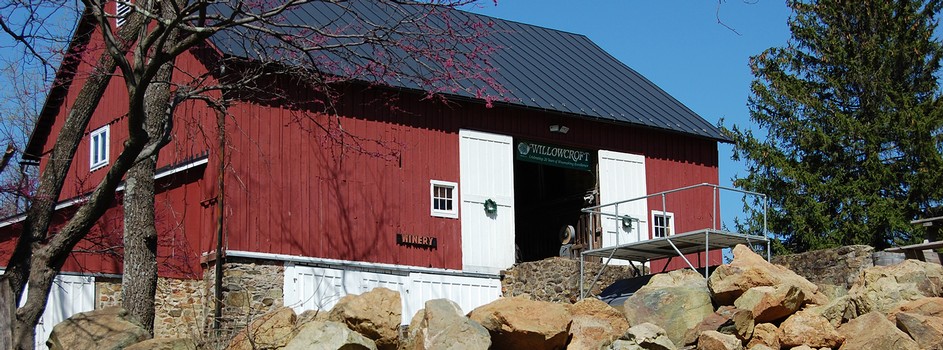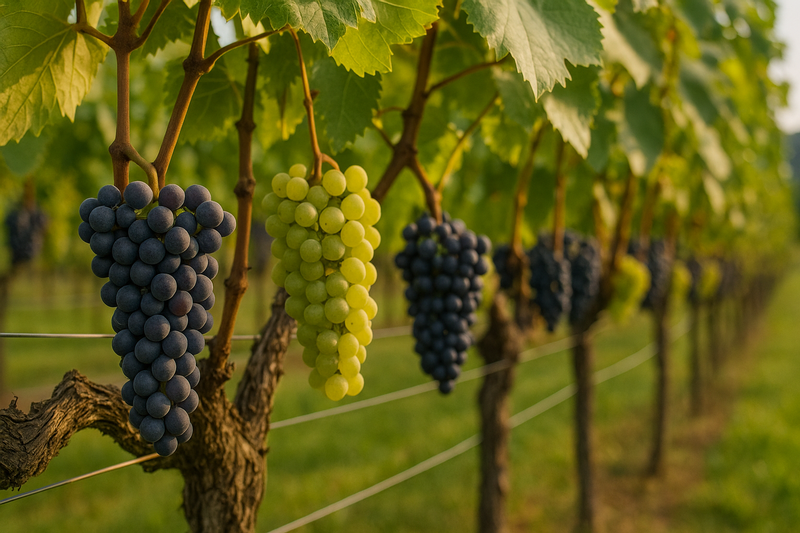🍇 Grape Clones & Hybrids: What They Are and Why They Matter
A Willowcroft Deep Dive into the Genetics of Great Wine
Not all Chardonnay is created equal.
Not even all Merlot.
In fact, even within the same vineyard block, the grapes growing just a few feet apart might come from entirely different genetic lineages.
Most wine lovers are surprised to learn how much grape genetics influence what’s in their glass. At Willowcroft, we take pride in our deep connection to both classic vinifera grapes—like Cabernet Sauvignon, Cabernet Franc, and Chardonnay, which were among our original plantings—and to modern hybrid varieties that have helped us thrive in Virginia’s unique growing environment.
Understanding how clones and hybrids work is key to appreciating the science and artistry behind every bottle we produce. And no, none of this involves GMOs—so let’s set the record straight.
Clones are genetically identical copies of a single "mother vine" that showed exceptional traits, like superior flavor, disease resistance, or early ripening. Cuttings, not seeds, propagate these vines, allowing them to retain the exact DNA of their origin.
Think of clones as siblings from the same exceptional parent, each expressing slightly different characteristics based on where they’re planted. For example, Chardonnay Clone 96 may bring out bright citrus and body, while Clone 76 delivers more floral and elegant tones.
Across the industry, clonal selection is key to maximizing quality. It helps us:
- Adapt to different vineyard blocks
- Improve disease resistance naturally
- Fine-tune flavor and ripening windows for our dry-farmed, hillside sites
From the beginning, Willowcroft has championed vinifera—the noble European species behind the world’s most iconic wines. Our early plantings of Cabernet Sauvignon, Cabernet Franc, and Chardonnay were rooted in this tradition and remain foundational to our portfolio today.
But Virginia is not Bordeaux or Burgundy. Our summers bring persistent heat and humidity, often without a reprieve from the heat. These humid streaks—lasting days, weeks, or even months—can place significant stress on the vines, increasing the risk of fungal diseases, rot, and uneven ripening. That’s where clonal selection and strategic hybrid use become critical. By selecting varietals and clones adapted to our specific conditions—such as Petit Verdot, whose small, tight clusters naturally help resist moisture intrusion—we can produce wines of integrity, character, and resilience, even in challenging years.
Hybrid grapes are crosses between different grape species, typically blending vinifera with native American grapes like Vitis labrusca or Vitis riparia. These intentional crosses are bred for strength: they’re often more resistant to disease, cold, humidity, and pests.
At Willowcroft, we proudly grow several hybrids that have earned fan-favorite status:
- Seyval Blanc – Crisp and citrusy, great for warm days and cool nights
- Chambourcin – Deep, fruit-forward, and perfect with pork or lamb
- Traminette – Spicy and floral, with Gewürztraminer in its lineage
Here’s the truth:
Hybrids are not genetically modified organisms (GMOs).
Hybrids are created through traditional plant breeding—crossing two grape varieties and selecting the best offspring. It’s a slow, deliberate process, often taking years or even decades.
GMOs, on the other hand, involve lab-based DNA manipulation, often introducing genes from unrelated species. Currently, no GMO grapes are used in commercial winemaking in the United States.
So while some folks hear “hybrid” and think “science experiment,” the reality is that hybrids are a time-honored, nature-guided solution to challenges like climate, pests, and sustainability.
Your wine starts long before the bottle—with decisions about what to plant, where, and why. Whether we’re choosing a Cab Franc clone for improved ripening or a hybrid like Seyval to reduce disease pressure, every choice in the vineyard shapes what you taste in the glass.
These selections affect:
- 🍇 Flavor profiles and aromatic intensity
- 🌿 Farming sustainability (especially in dry-farmed systems like ours)
- 🌦️ Adaptation to climate and disease pressure
- 📦 Consistency across vintages and vineyard blocks
Join us in the tasting room or attend one of our vineyard tours to see how these choices play out in real time, from bud break to bottle. The more you know, the better it tastes—and we’re always happy to pour and chat.


